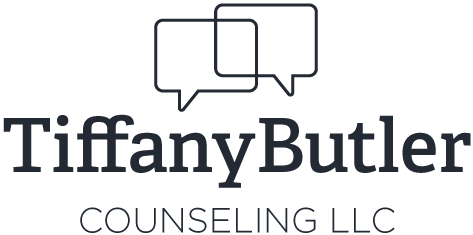So…what brings you here today?
My approach
If you’re looking for a counselor, you will probably notice that each of us has our own approach—it is often based on a particular “theory” of counseling. And while I would not advise choosing a counselor based solely on therapeutic approach, it is helpful to understand their approach on some level just to have a better idea of what to expect from the counseling experience.
I practice Cognitive Behavioral Therapy (so what is that, exactly?)
Cognitive Behavioral Therapy is based on the idea that our feelings and behaviors are influenced by our thoughts or perceptions about events—not the events themselves. If we want to change feelings and behaviors that are troubling us, we focus on modifying the thinking that is behind them.
What’s so great about Cognitive Behavioral Therapy?
It is shown in research to be effective in treating a range of conditions including but not limited to depression, anxiety, substance abuse, ADHD, personality disorders and bipolar disorders.
It promotes results that can be measured against specific goals (like increasing feelings of self-esteem or raising confidence in setting relationship boundaries, for example).
It can be used successfully with individuals, couples, families and groups.
And the best part…you can learn to apply concepts of Cognitive Behavioral Therapy in order to examine some issues on your own. Counseling may continue for as long as it is helpful and beneficial, though I do support clients in developing tools they can apply independently as well.
And finally, Cognitive Behavioral Therapy has helped me, and I have seen it work for others, too.
What to expect with Cognitive Behavioral Therapy
Cognitive Behavioral Therapy is typically a short-term treatment. There is a beginning, middle and end stage, and depending on desired outcomes, treatment can last a few weeks to a few months or more.
With Cognitive Behavioral Therapy, you can expect to:
- work together to set goals for your counseling;
- work together to set an agenda for each session;
- have homework to do outside of session (we’ll come up with that together, too!);
- better understand your thinking patterns, and how they can better serve you; and,
- GROW with guidance, empathy and support.
While my counseling approach provides a foundation for working together with clients, what is most important is a positive therapeutic relationship. That means clients feel seen, heard and understood when we work together, and we make overall progress toward their counseling goals.
Additional treatment tools I can offer
Eye Movement Desensitization and Reprocessing (EMDR) therapy is designed to help clients reprocess traumatic memories that were not resolved naturally, allowing the brain to resume healing and the trauma response to be diminished. Though commonly used to treat PTSD, EMDR has also shown to be effective in treating anxiety, depression, grief, panic disorders and a variety of other conditions. It often yields results faster than more traditional approaches to therapy. Learn more from the EMDR International Association.
Cognitive Processing Therapy is a cognitive-behavioral treatment designed specifically for PTSD. It is a structured approach that has proven to be effective in reducing PTSD symptoms stemming from abuse, assault, combat, rape, natural disasters and other traumatic experiences. Treatment for a specific traumatic event is typically completed over the course of 12 sessions, though fewer or additional sessions may be required. Learn more about Cognitive Processing Therapy.
What to expect from counseling
Counseling is a collaborative experience. We discuss what the client wants to work on, set goals for our work together, set an agenda for each session, and revisit the client’s goals throughout treatment. I ask for feedback regularly so we can adjust our work and make the best use of our time together.
Counseling is not me telling people what they should do. I don’t have all the answers, and I can’t provide a “quick fix” for every problem. What I will do is work closely with clients to help them figure out how best to move forward.
Counseling can be hard! Troubles sometimes stem from painful past experiences that may surface in therapy. Processing those experiences in a safe space, however, can help move people toward their counseling goals.
Clients will have a safe, confidential space to share what they are experiencing and be heard and understood without fear of judgment or shaming.
Results take time and effort. It is not unusual to see some progress within the first few sessions, though clients won’t necessarily experience “a-ha!” moments every time we get together. People may even feel like they’ve taken a step back sometimes. That’s OK! What’s important is that we see overall progress during a series of sessions and experience a generally positive trend in the symptoms for which the client is seeking relief.
Sessions are typically 50 minutes in length, though longer sessions may be scheduled as needed.
Therapy may continue for several weeks, a few months, or longer depending on what clients want to gain from it.
About Tiffany
I came to the counseling profession after spending more than 20 years in corporate marketing communications. Stay with me…it’s not as big a leap as it may seem! Both fields are focused on helping people, and they require similar skills for success: the ability to listen closely, ask the right questions, build trusting relationships and understand human thought and behavior.
Before I became a practitioner of counseling, I sought help from a counselor to navigate a few rough spots in my adult life. Then, a major curve ball landed me in counseling for about a year of weekly sessions. Not only was counseling instrumental to my healthy emergence from that experience, it transformed other aspects of my life in ways I never imagined—including my relationships with others and my relationship with myself.
Until then, I had not fully realized that life could be better. My experience in counseling helped identify and lift some of the emotional burdens I’d been carrying for most of my life. It was so transformative I was moved to go back to school so I could help others discover their own version of that experience.
I enrolled in a graduate counseling program. While continuing to work and go to school, I had the opportunity to join a national peer-to-peer support network as the primary contact and group leader for the Portland/Vancouver area. This provided me the opportunity to help others who’d gone through the “curve ball experience” that I did while continuing to develop my skills as a counselor. I continued this volunteer service for four years. I completed my internship at the Washington County Sheriff’s Office as part of my degree requirement, including one-on-one and group counseling work with incarcerated adults at the facility. Both of these real-life experiences were deeply rewarding and serve as a constant reminder of how healing it can be for people to receive understanding and empathy in the midst of their pain.
I graduated with a Master’s Degree in Clinical Mental Health Counseling from George Fox University and am a member of the American Counseling Association, Oregon Counseling Association and American Association for Marriage and Family Therapy.

Tiffany Butler
MA, LPC
How it works
The first (intake) session
During the first appointment, often called an “intake”, we’ll walk through a series of questions that will help me learn more about you and provide a solid foundation for our work together. Intake sessions are 80 minutes, and are charged at the extended session rate ($195 for individual clients, $250 for a couple or family).
50-minute (standard) sessions
- individual counseling $165
- couple or family counseling $185
80-minute (extended) sessions
- individual counseling $195
- couple or family counseling $250
Payment
Payment for services is due at the beginning of each session. I am not affiliated with any insurance or managed-care providers, so payment for services is out-of-pocket. I accept cash, checks, debit cards and credit cards.
Please note that a credit or debit card is required to be kept on file, even if you are paying with cash or check.
Cancellation
If you must cancel, please do so at least 24 hours prior to your scheduled session to avoid being charged for that session. While it is rare, repeated cancellations and/or failures to reschedule can result in release from counseling.
Please reach out by phone or email to ask any questions you may have, request a free 15-minute consultation or schedule an appointment. Appointments are currently offered in-office or by telehealth (video) 9am-7pm Monday through Thursday.
Office (by appointment only)
1900 NE Highway 99W
Suite B2
McMinnville, OR 97128
Phone
971.716.1515
tiffany@tiffanybutlercounseling.com
Please do not send sensitive or confidential information via email, as email is inherently insecure and privacy cannot be guaranteed. If you do not wish to accept this risk, please call the number above instead.


